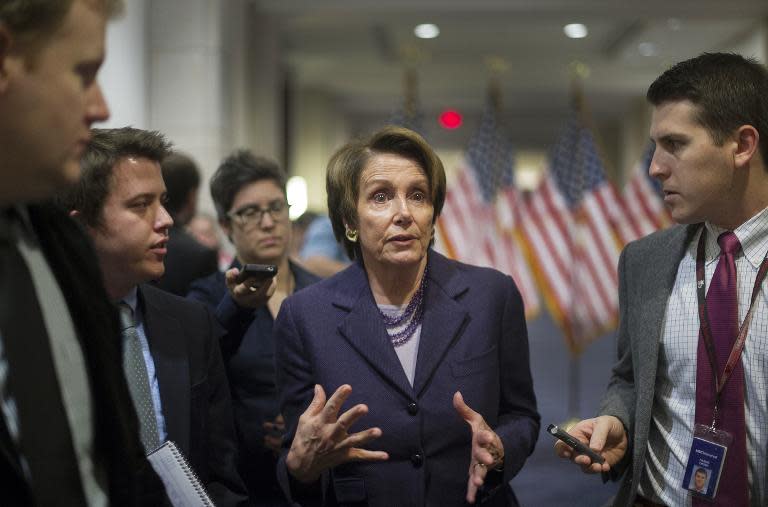White House insists still pushing Asia trade pact
The White House on Friday rushed to make clear that it remained committed to sealing a vast Pan-Pacific trade pact, despite stiff resistance among its closest Democratic allies in Congress. The Trans-Pacific Partnership (TPP) is a centerpiece of Obama's "rebalancing" of foreign policy towards the emerging economies of Asia. But the top Democrats in the Senate and the House of Representatives have signaled that they oppose granting trade promotion authority (TPA) -- which would effectively allow President Barack Obama to negotiate trade deals which cannot be later modified by Congress. A report on Friday quoted Vice President Joe Biden in a closed-door meeting with Democratic lawmakers as acknowledging the push for granting TPA, for four years, was on hold. But a senior administration official argued forcibly that the bid to secure TPA, which expired in 2007, and the TPP remained on track. "I would not suggest in any way we are not committed to concluding a TPP this year," the official said on condition of anonymity. "We are going to keep at this. TPA is part of that broader context. "People are referring to second hand accounts of something that the vice president may have said in a closed door session," the official said. The Huffington Post on Friday quoted Biden as indicating that the drive for TPA -- a heavy lift for Democrats who fear a backlash from the pro-trade union constituents in a mid-term election year, was on hold. "Nancy, I know it's not coming up now," Biden told House Democratic minority leader Nancy Pelosi, the website said, quoting a Democrat source attending the party retreat in Cambridge, Maryland. Opponents of the 12-nation TPP worry that it would weaken labor and environmental standards -- putting US manufacturing at a disadvantage -- and would spark a new flight of American jobs to low wage developing economies. But advocates of the deal argue that nations negotiating the pact with Washington are unlikely to make difficult political concessions unless they are guaranteed that corresponding agreements made the administration are not undone by Congress. The White House argues that it did manage to ratify trade deals with Panama and South Korea in Obama's first term. Negotiators missed a 2013 deadline to finish the TPP but have pledged to keep trying. The talks involve Australia, Brunei, Canada, Chile, Japan, Malaysia, Mexico, New Zealand, Peru, Singapore, the United States and Vietnam. Obama will update his Mexican and Canadian counterparts on the push for TPP when he meets them in Mexico for a North American leaders summit next week. The deal will also form a key part of his agenda when he makes a four-nation tour of Asia in April. Washington is also pushing for a Transatlantic Trade and Investment partnership with the European Union -- which would also likely require him to get fast track or TPA powers. Opponents of that deal have similar worries about its impact on American employment.



